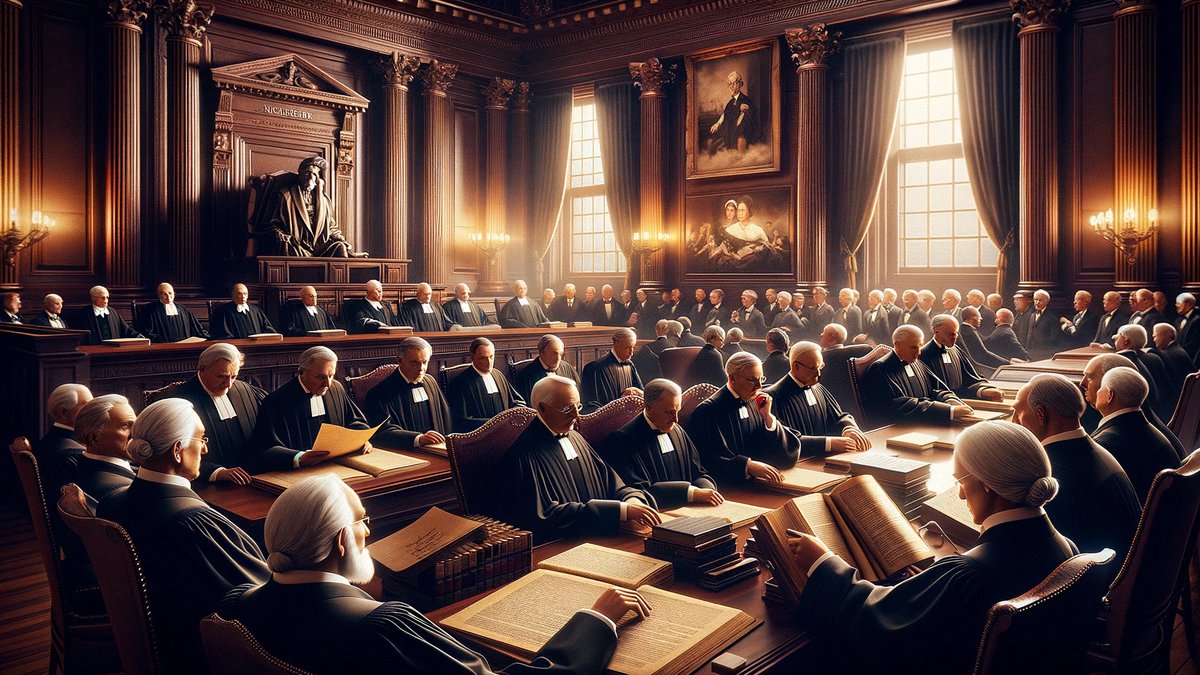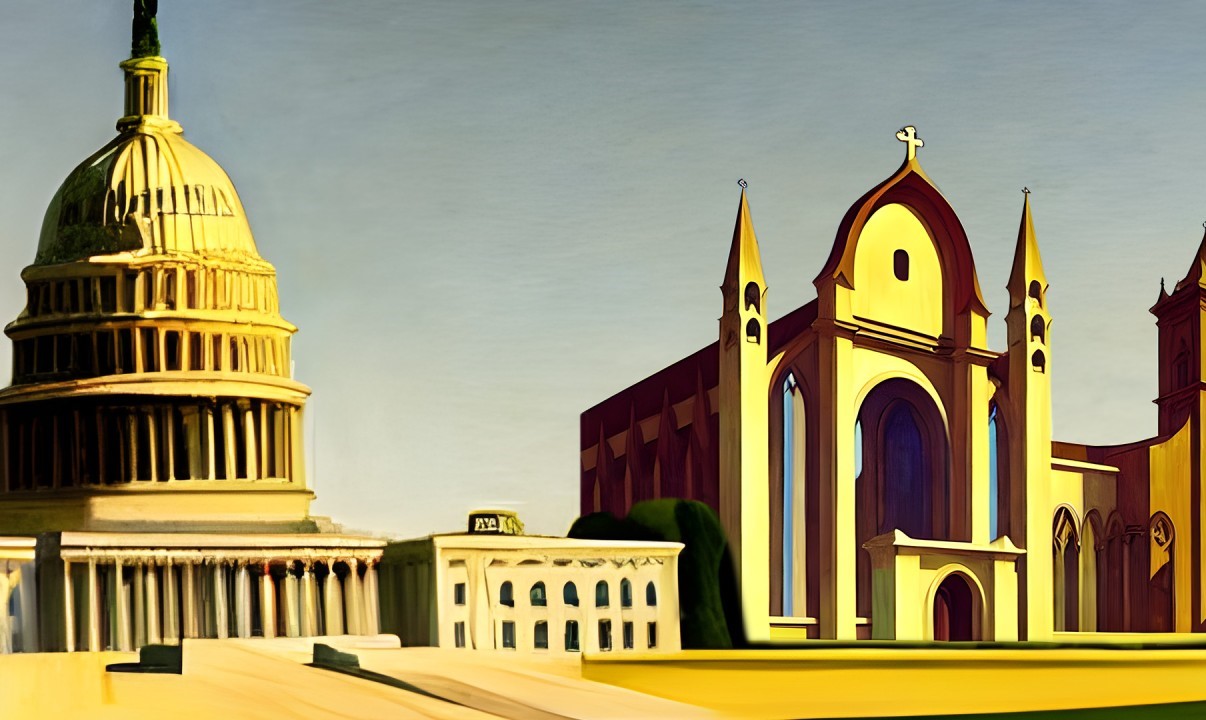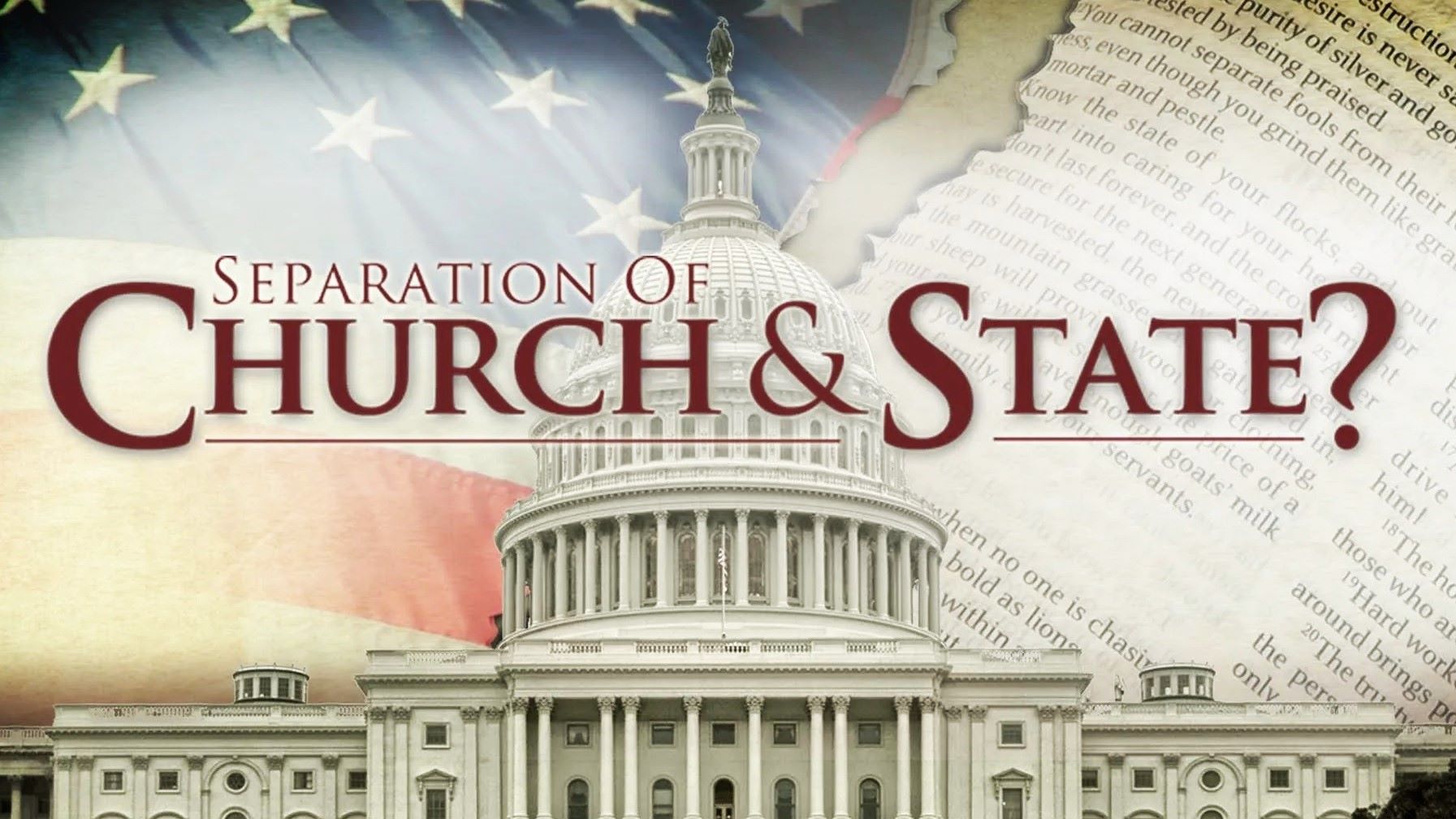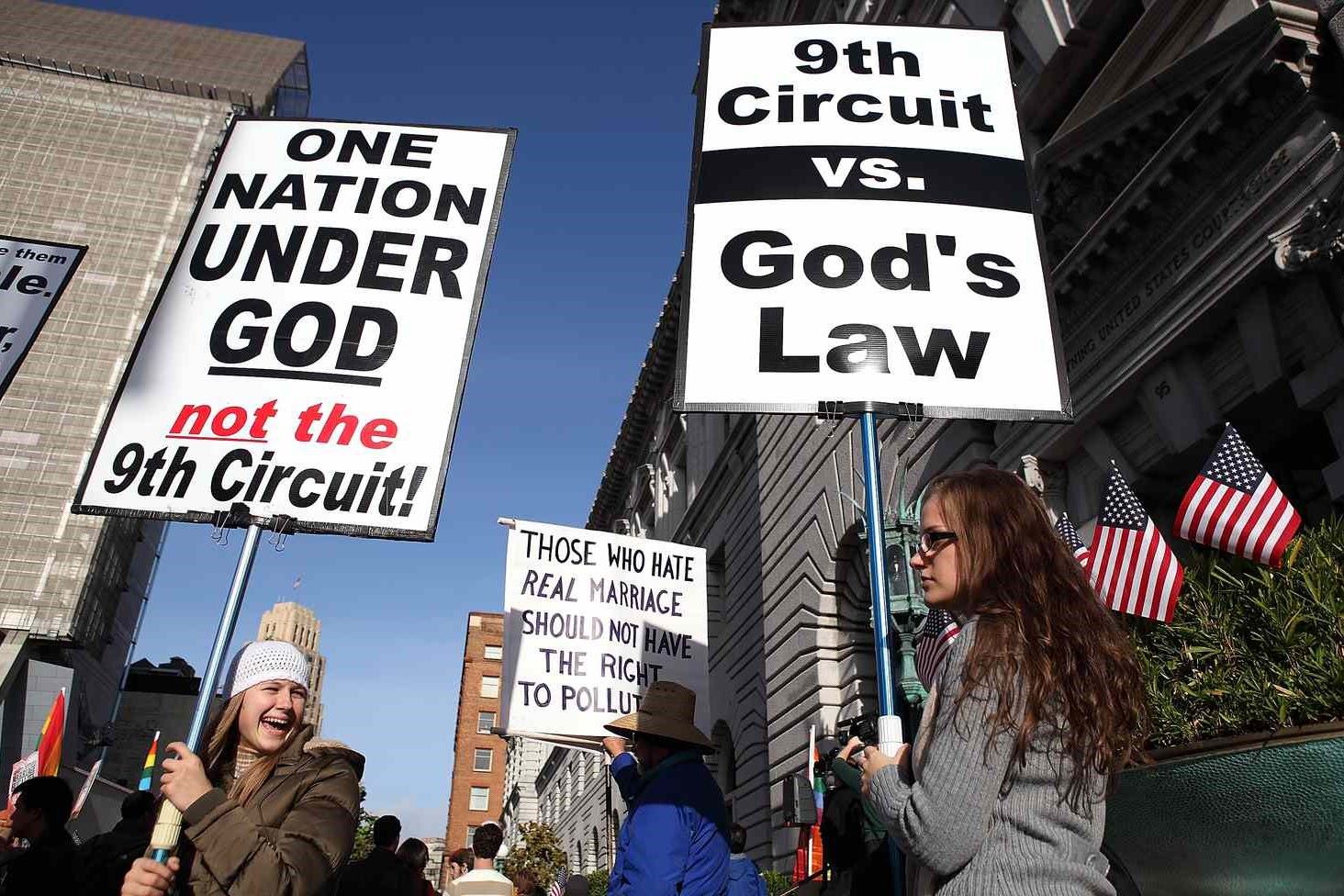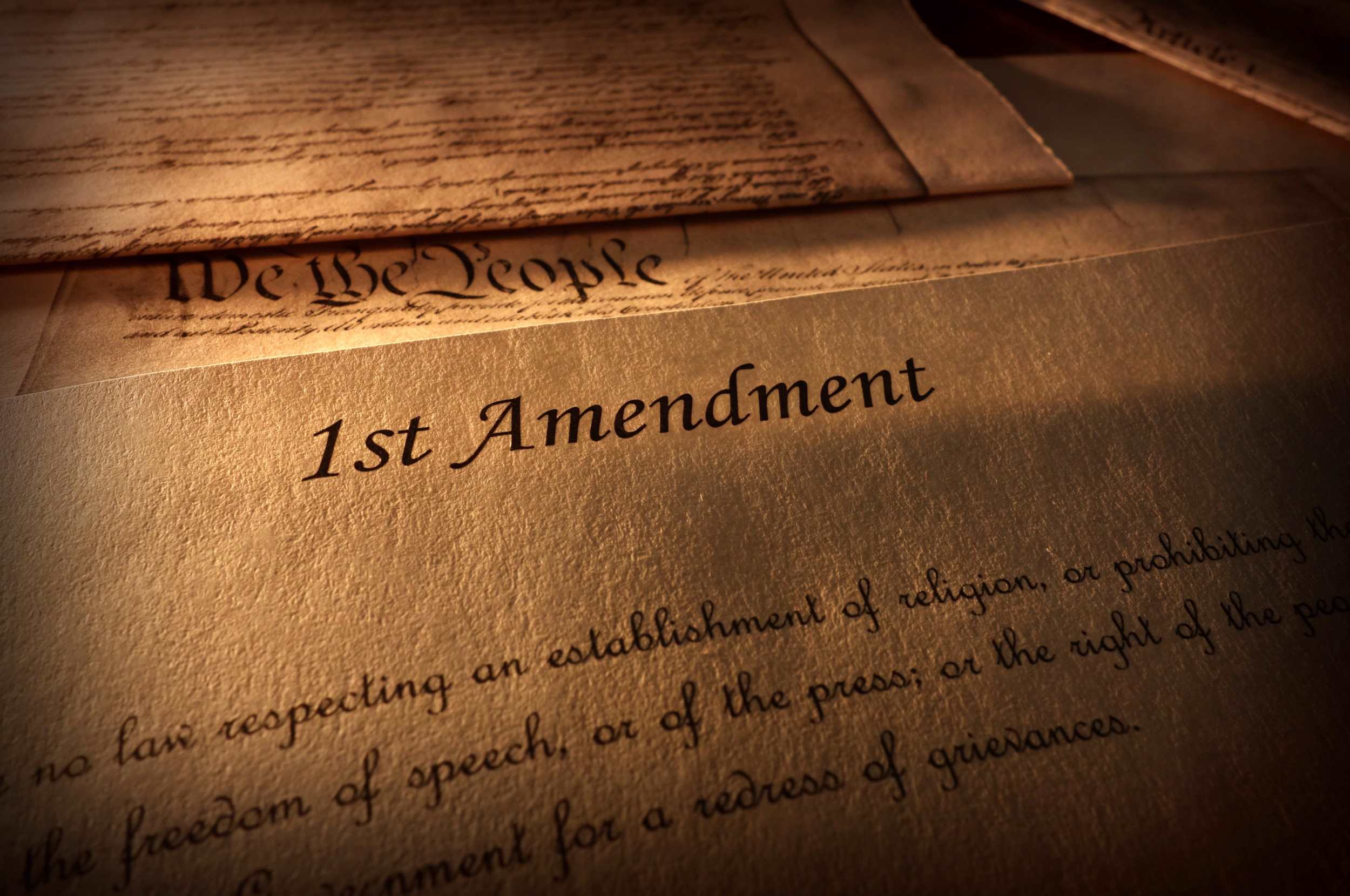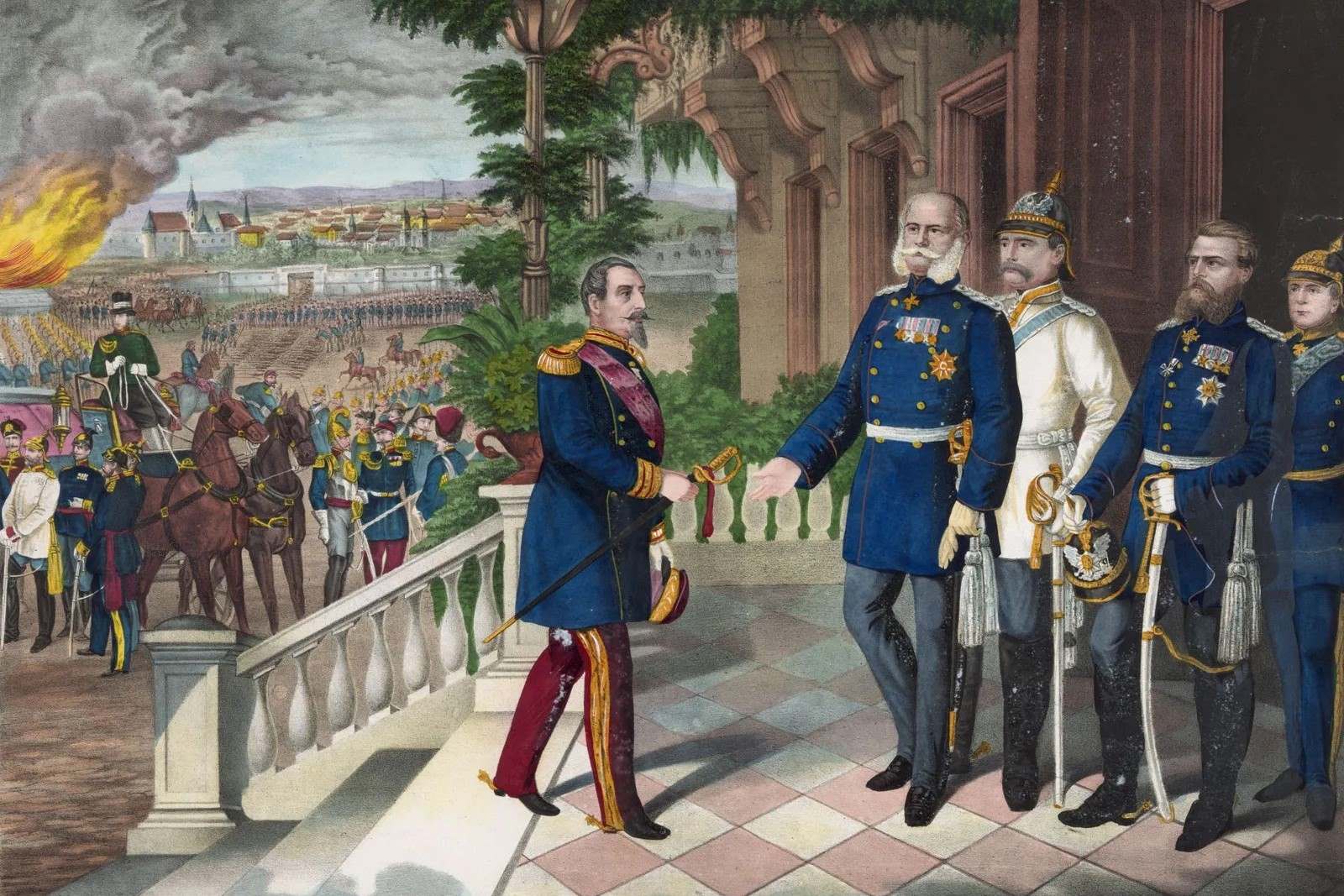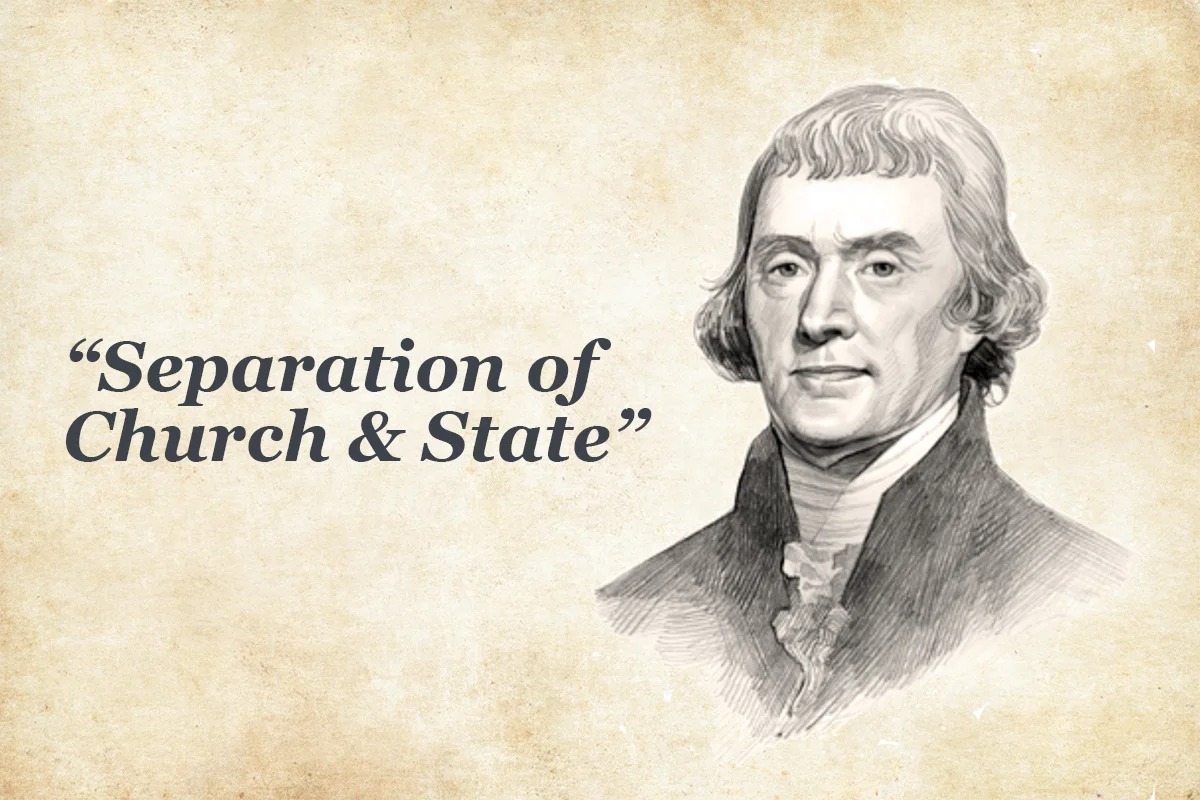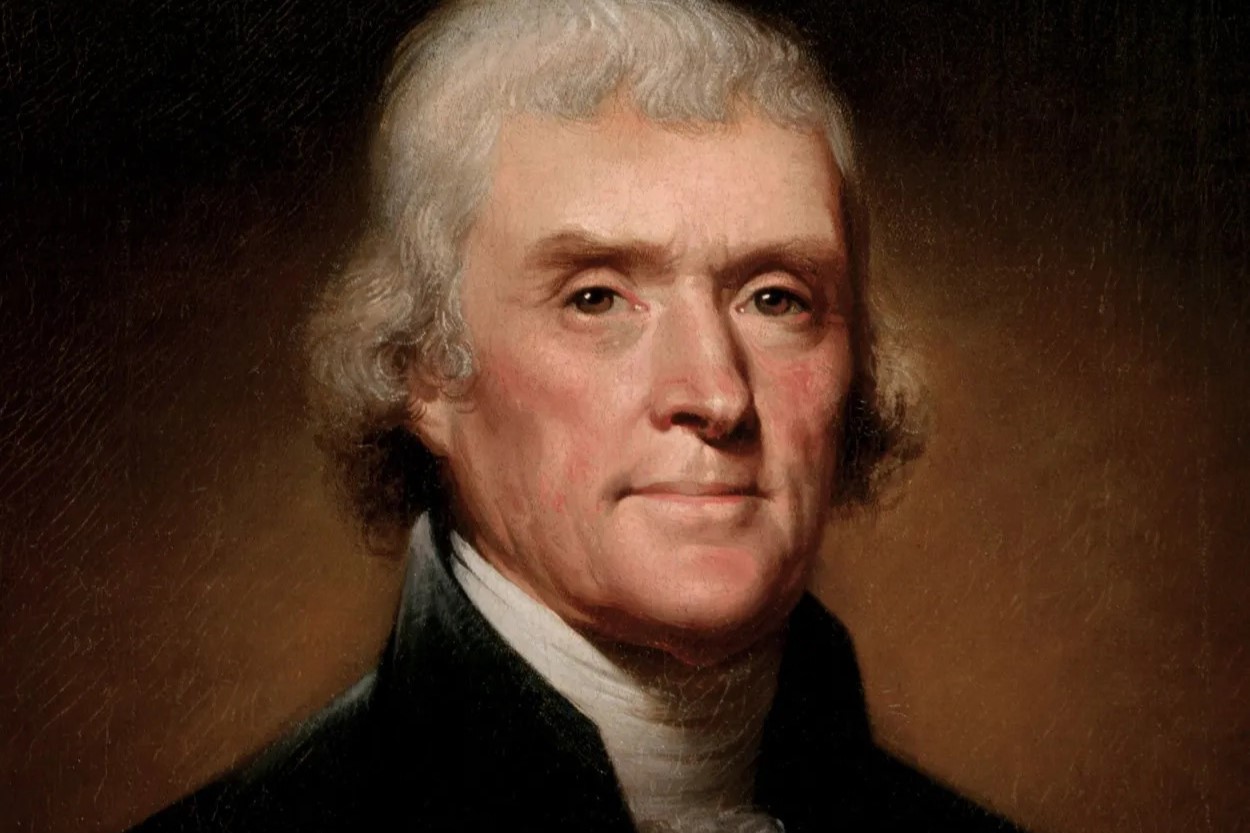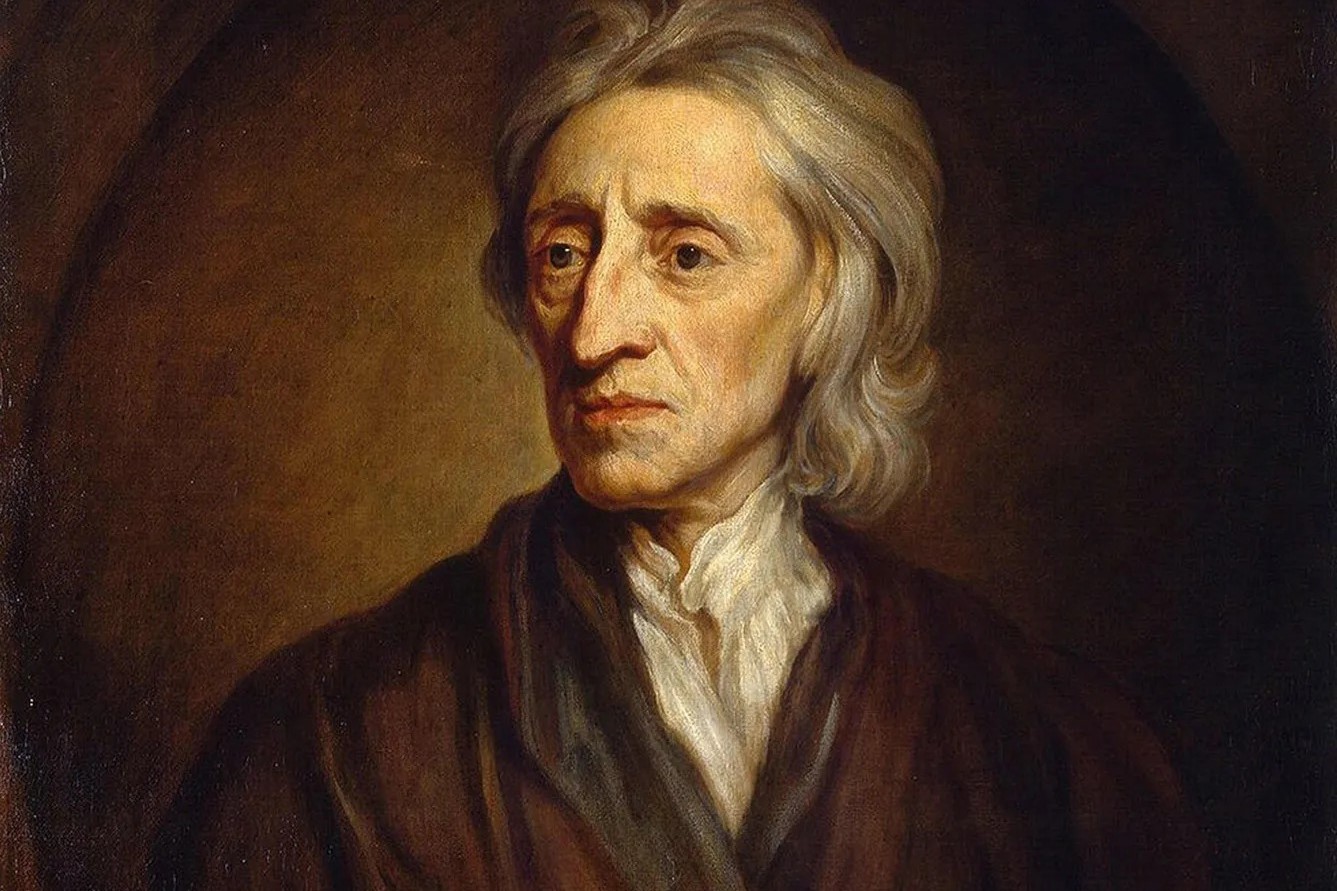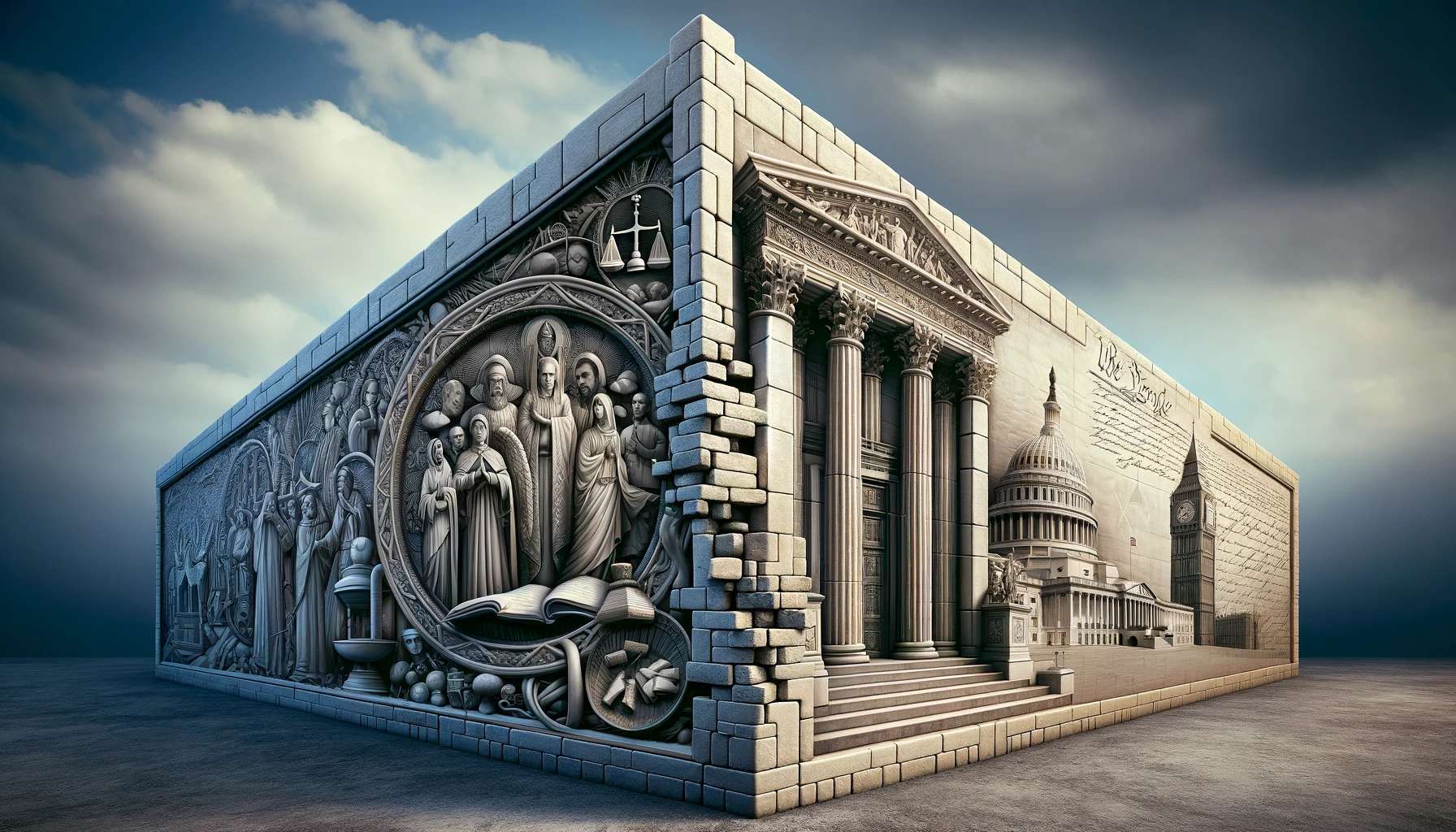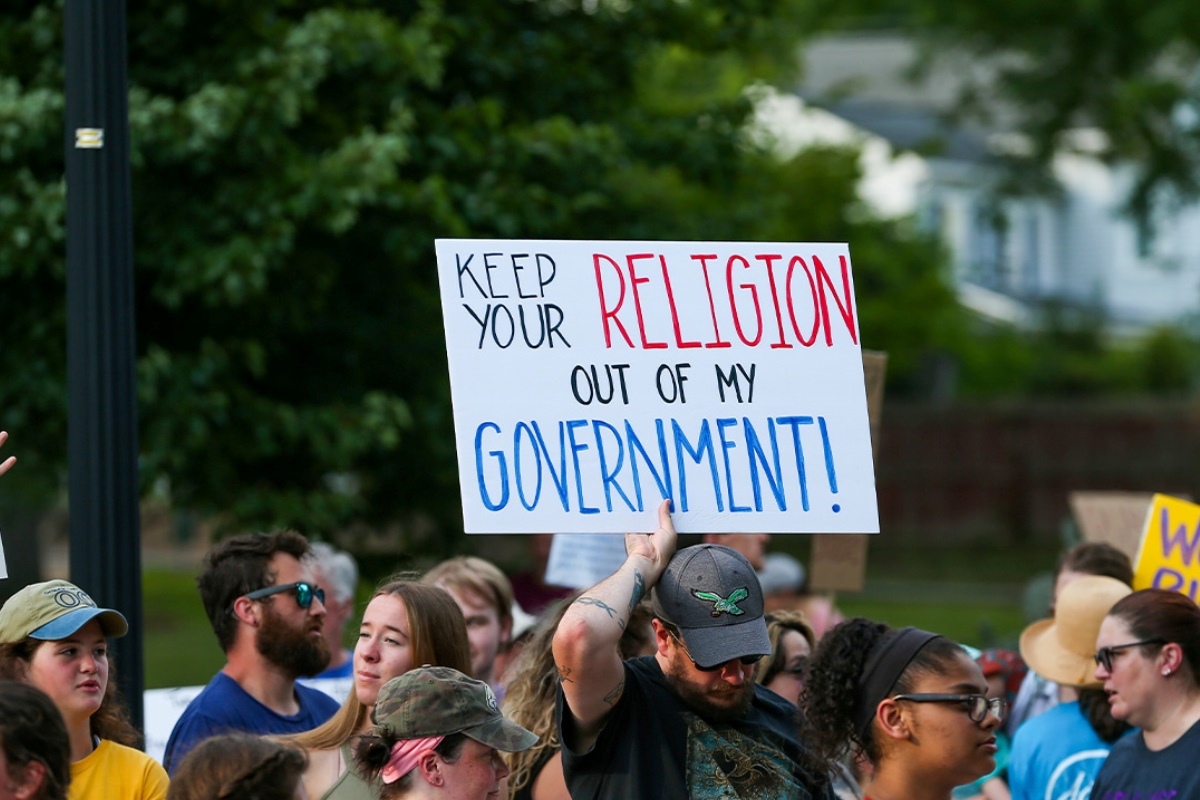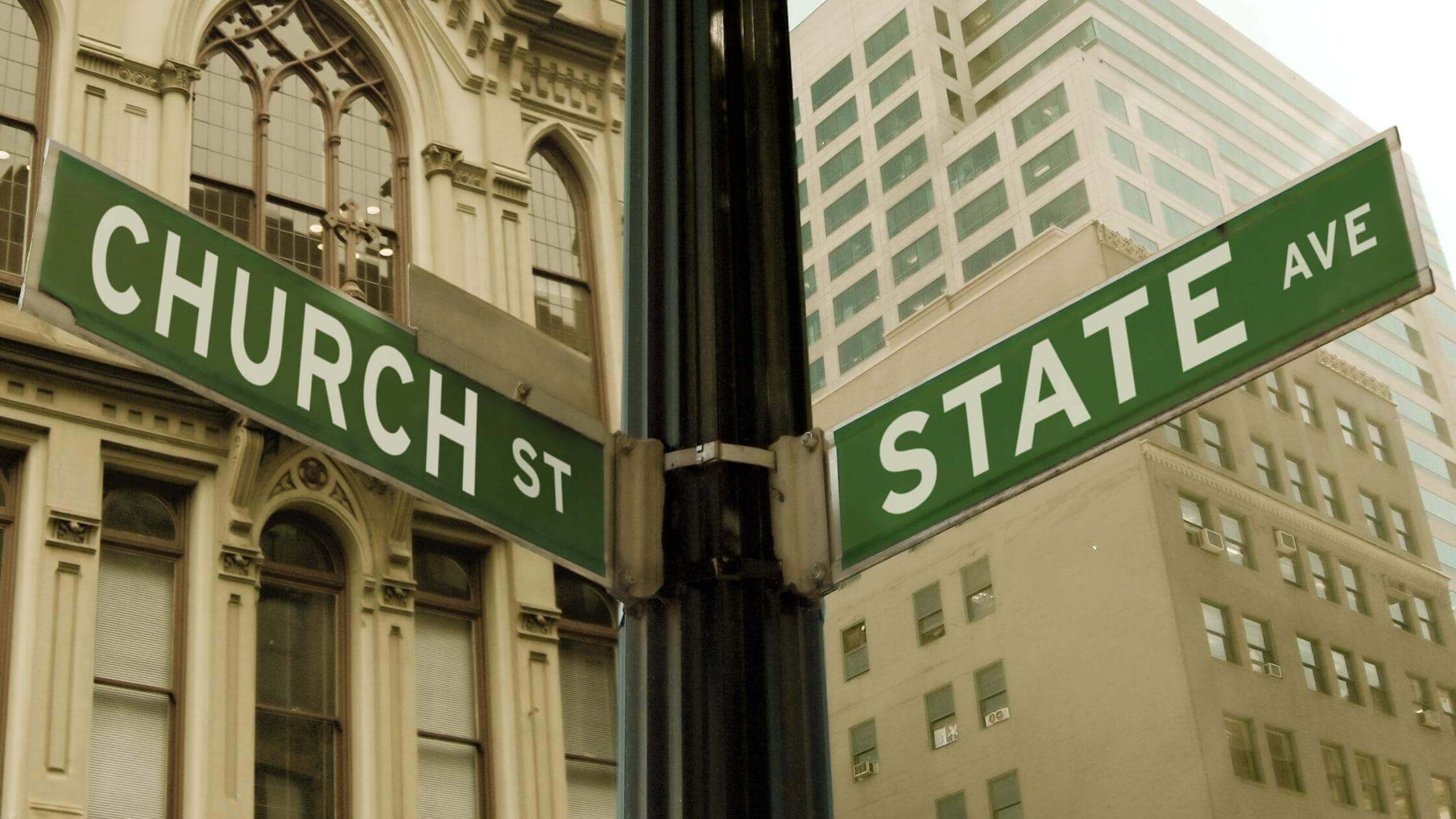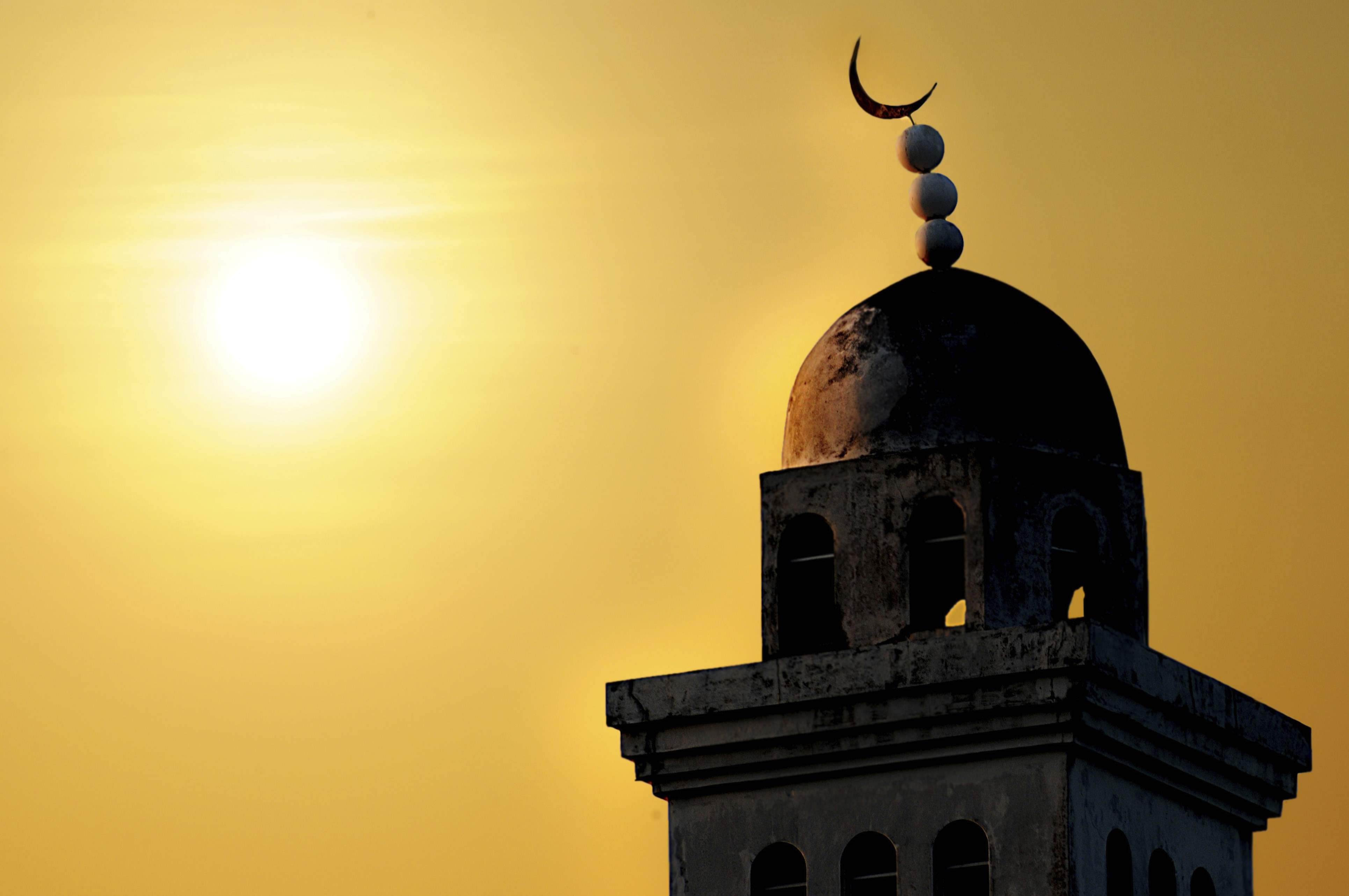Home>Theology and Spirituality>How Did Separation Of Church And State Affect The American Revolution
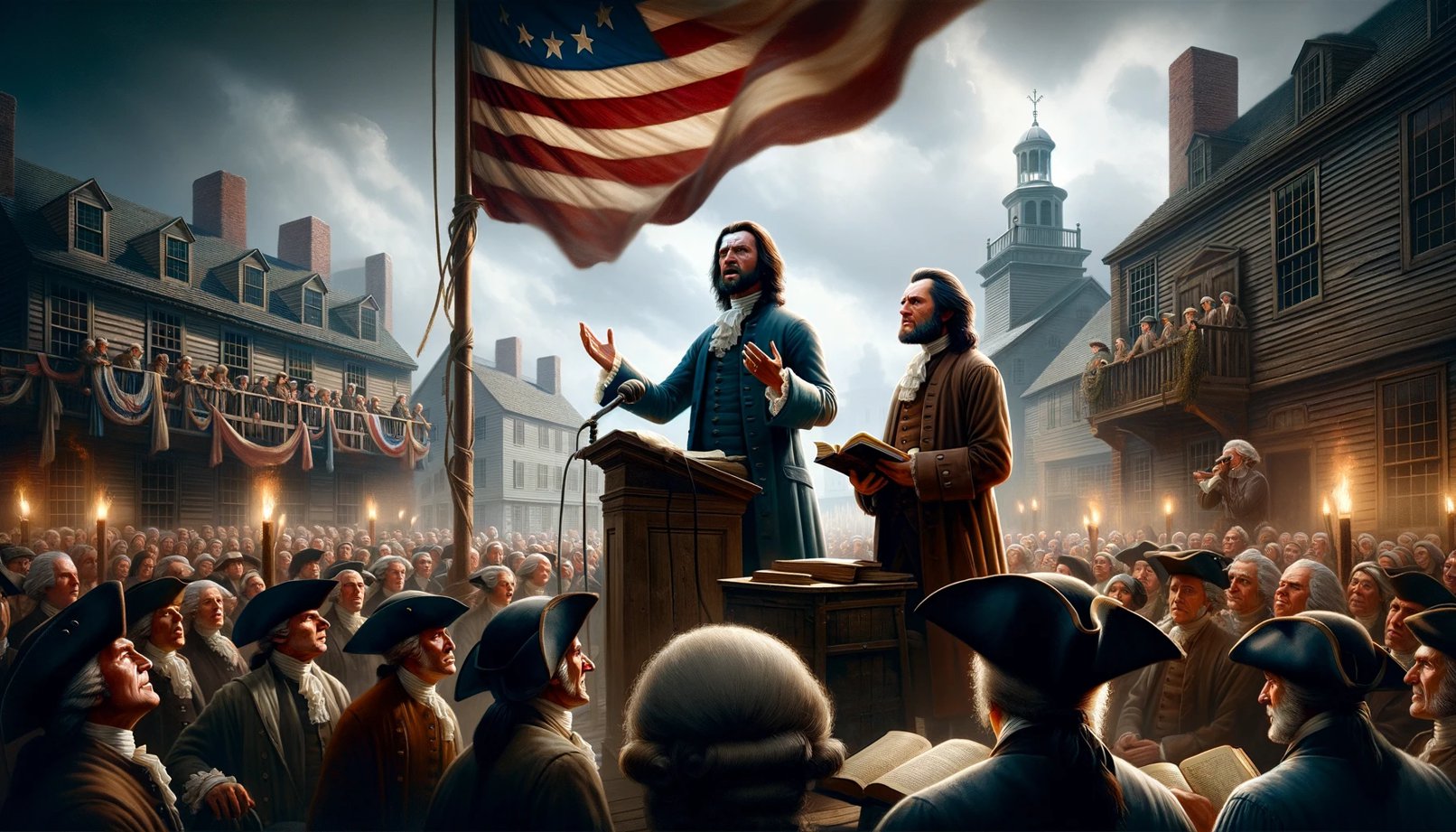

Theology and Spirituality
How Did Separation Of Church And State Affect The American Revolution
Published: February 11, 2024
Peter Smith, Editorial Director at Christian.net, combines deep insights into faith, politics, and culture to lead content creation that resonates widely. Awarded for his contributions to religious discourse, he previously headed a major organization for religious communicators, enhancing dialogue on faith's societal impacts.
Discover how the separation of church and state impacted the American Revolution and its significance in theology and spirituality. Explore the historical implications today.
(Many of the links in this article redirect to a specific reviewed product. Your purchase of these products through affiliate links helps to generate commission for Christian.net, at no extra cost. Learn more)
Table of Contents
- Introduction
- The Role of Religion in Colonial America
- The Influence of Enlightenment Ideas
- The Great Awakening and its Impact
- The Founding Fathers and their Views on Church and State
- The First Amendment and the Establishment Clause
- The Impact of Separation of Church and State on the American Revolution
- Conclusion
Introduction
The American Revolution was a pivotal moment in history, marking the birth of a new nation founded on principles of liberty, democracy, and individual rights. At the heart of this revolutionary movement lay the complex interplay between religion, governance, and the quest for freedom. The separation of church and state, a concept deeply rooted in the history of the United States, played a significant role in shaping the ideological landscape that fueled the revolution.
As we delve into the multifaceted relationship between religion and the American Revolution, it becomes evident that the concept of separating church and state was not only a legal and political matter but also a deeply philosophical and spiritual one. The impact of this separation reverberated through the beliefs and actions of the colonists, the intellectual currents of the Enlightenment, and the religious fervor of the Great Awakening. Moreover, the views of the Founding Fathers and the subsequent enshrinement of religious freedom in the First Amendment further underscore the profound influence of the separation of church and state on the American Revolution.
In exploring this pivotal historical juncture, we will unravel the intricate tapestry of religious, philosophical, and political forces that converged to shape the revolutionary spirit of America. By examining the role of religion in colonial America, the influence of Enlightenment ideas, the transformative power of the Great Awakening, and the perspectives of the Founding Fathers, we will gain a deeper understanding of how the separation of church and state influenced the trajectory of the American Revolution. This exploration will illuminate the profound impact of this separation on the quest for independence, the formation of a new nation, and the enduring principles that continue to shape the American identity.
The Role of Religion in Colonial America
Religion held a central position in the fabric of colonial American society, exerting a profound influence on the beliefs, values, and daily lives of the early settlers. The diverse religious landscape of the colonies reflected a rich tapestry of faith traditions, including various denominations of Christianity, Judaism, and indigenous spiritual practices. These religious affiliations played a pivotal role in shaping the social, cultural, and political dynamics of colonial America.
The Puritans, who sought religious freedom in the New World, established communities in New England, where their Calvinist beliefs permeated every aspect of life. Their commitment to a strict moral code and the pursuit of a godly society laid the groundwork for the development of a distinctively Puritan culture. Similarly, the Quakers in Pennsylvania and the Anglicans in the southern colonies contributed to the diverse religious landscape, each leaving an indelible mark on the social and political ethos of their respective regions.
Religion also served as a unifying force within colonial communities, providing a sense of shared identity and purpose. Churches served as not only places of worship but also as centers of social cohesion, education, and governance. The clergy wielded significant influence, offering spiritual guidance while also shaping public opinion on matters of morality and civic duty.
Moreover, the intertwining of religion and governance in colonial America laid the groundwork for the concept of religious freedom and the separation of church and state. The experiences of religious persecution in Europe prompted many colonists to advocate for the freedom to practice their faith without fear of state interference. These early expressions of religious liberty sowed the seeds for the revolutionary ideals of individual rights and autonomy from government intrusion.
In essence, the role of religion in colonial America was multifaceted, permeating the social, cultural, and political spheres of the burgeoning society. The diverse religious landscape, coupled with the quest for religious freedom, set the stage for the profound transformations that would unfold in the crucible of the American Revolution. This rich tapestry of religious diversity and the pursuit of liberty would ultimately shape the foundational principles of the emerging nation, laying the groundwork for the enduring legacy of religious freedom and the separation of church and state in the United States.
The Influence of Enlightenment Ideas
The Enlightenment, a transformative intellectual movement that swept across Europe in the 17th and 18th centuries, exerted a profound influence on the ideological landscape of colonial America. At its core, the Enlightenment championed the principles of reason, individualism, and the pursuit of knowledge, challenging traditional sources of authority and inspiring a reevaluation of the relationship between religion, governance, and human freedom.
Enlightenment thinkers such as John Locke, Voltaire, and Montesquieu espoused ideas that resonated deeply with the colonists, shaping their perspectives on liberty, natural rights, and the role of government. John Locke's concept of the social contract and the inherent rights of individuals to life, liberty, and property resonated with the colonists, providing a philosophical foundation for their aspirations for independence and self-governance.
Moreover, the Enlightenment emphasis on rational inquiry and empirical observation fueled a spirit of inquiry and critical thinking among the colonists, challenging traditional religious dogma and hierarchical structures of authority. This intellectual ferment engendered a climate of questioning and exploration, fostering a reexamination of long-held beliefs and institutions.
The Enlightenment's emphasis on religious tolerance and the separation of church and state also left an indelible mark on the ideological landscape of colonial America. The notion that individuals should be free to practice their faith without state coercion resonated deeply with the colonists, who had witnessed the perils of religious persecution in Europe and sought to establish a society where religious diversity could flourish without fear of repression.
Furthermore, the Enlightenment's critique of arbitrary power and its advocacy for the rule of law and constitutional government provided a conceptual framework for the colonists' resistance to British tyranny. The ideas of Montesquieu regarding the separation of powers and checks and balances found resonance in the colonists' aspirations for a system of governance that safeguarded individual liberties and curtailed the concentration of authority.
In essence, the Enlightenment's emphasis on reason, individual rights, religious tolerance, and constitutional government profoundly influenced the ideological currents that underpinned the American Revolution. The colonists' embrace of these Enlightenment ideas fueled their quest for independence and self-determination, shaping the foundational principles that would come to define the emerging nation. The enduring legacy of the Enlightenment's influence on the American Revolution underscores the enduring power of ideas to ignite transformative change and shape the course of history.
The Great Awakening and its Impact
The Great Awakening, a profound religious revival that swept through the American colonies in the 18th century, left an indelible imprint on the social, cultural, and political landscape, profoundly shaping the trajectory of the American Revolution. This spiritual awakening, characterized by fervent evangelical preaching and a fervor for personal salvation, ignited a profound transformation in the religious consciousness of the colonists, fostering a renewed sense of individual agency, moral responsibility, and communal solidarity.
At the heart of the Great Awakening was a fervent call to reject complacency and embrace a personal, experiential faith. It challenged the established religious institutions and hierarchical authority, empowering individuals to seek direct communion with the divine. This emphasis on personal piety and spiritual autonomy resonated deeply with the colonists, fueling a sense of empowerment and self-determination that would reverberate far beyond the realm of religion.
The Great Awakening also engendered a spirit of egalitarianism and social cohesion, transcending traditional boundaries of class, race, and gender. The revival meetings, characterized by impassioned sermons and emotional fervor, provided a communal space where individuals from diverse backgrounds could come together in pursuit of spiritual renewal. This collective experience of religious awakening fostered a sense of shared identity and purpose, laying the groundwork for a nascent sense of unity and solidarity that would later find expression in the revolutionary fervor against British rule.
Moreover, the Great Awakening catalyzed a reinvigorated commitment to individual liberty and moral agency. The emphasis on personal conversion and the pursuit of salvation underscored the idea that every individual possessed the capacity for spiritual transformation and moral autonomy. This newfound sense of personal agency and moral responsibility would resonate deeply with the colonists, fueling their aspirations for political autonomy and self-governance.
In essence, the Great Awakening exerted a profound impact on the ideological currents that propelled the American Revolution. It fostered a spirit of individual empowerment, communal solidarity, and a fervent quest for spiritual and moral autonomy. The transformative influence of the Great Awakening on the colonists' consciousness and aspirations laid the groundwork for the revolutionary fervor that would ultimately culminate in the quest for independence and the founding of a new nation built on the principles of individual rights, self-determination, and the pursuit of liberty.
The Founding Fathers and their Views on Church and State
The Founding Fathers of the United States, a group of visionary leaders who played a pivotal role in shaping the nation's foundational principles, held diverse and nuanced views on the relationship between church and state. Their perspectives were deeply influenced by a complex interplay of Enlightenment ideals, religious convictions, and the imperative to establish a society that safeguarded both religious freedom and the integrity of governance.
Thomas Jefferson, a staunch advocate for religious freedom, articulated his views on the separation of church and state in his famous letter to the Danbury Baptist Association in 1802. In this seminal correspondence, Jefferson employed the metaphor of a "wall of separation between church and state" to underscore the need for a clear delineation between religious institutions and governmental authority. His advocacy for a secular public sphere, free from religious coercion, reflected a commitment to protecting individual conscience and preventing the encroachment of religious orthodoxy on matters of governance.
James Madison, often hailed as the "Father of the Constitution," shared Jefferson's commitment to religious liberty and the separation of church and state. His pivotal role in drafting the First Amendment further solidified his dedication to ensuring that government remained neutral in matters of religion, thereby safeguarding the rights of individuals to worship according to their conscience. Madison's principled stance against government-endorsed religion underscored his belief in the fundamental importance of preserving the autonomy of religious institutions from state interference.
In contrast, John Adams, while advocating for religious tolerance, expressed reservations about the complete separation of church and state. His belief in the moral and ethical foundations provided by religion led him to assert that a degree of religious influence was essential for the stability and moral fabric of society. Adams' perspective reflected a nuanced understanding of the role of religion in shaping civic virtue and ethical conduct, while also acknowledging the need to prevent the establishment of a state religion that could infringe upon individual freedoms.
The diverse viewpoints of the Founding Fathers underscored the complexity of the relationship between church and state in the nascent American republic. Their collective commitment to religious freedom, tempered by varying degrees of emphasis on the separation of church and state, laid the groundwork for the enduring principles enshrined in the First Amendment. This rich tapestry of perspectives continues to inform contemporary debates on the intersection of religion and governance, underscoring the enduring relevance of the Founding Fathers' legacy in shaping the delicate balance between religious liberty and the neutrality of the state.
The First Amendment and the Establishment Clause
The First Amendment of the United States Constitution stands as a cornerstone of the nation's commitment to safeguarding fundamental liberties, including the vital principle of religious freedom. Central to the First Amendment is the Establishment Clause, a succinct yet profound provision that has profoundly shaped the relationship between religion and governance in the United States.
The Establishment Clause, which states that "Congress shall make no law respecting an establishment of religion," embodies a commitment to preventing the establishment of a state-endorsed religion and safeguarding the autonomy of religious institutions from governmental interference. This foundational principle reflects the framers' profound understanding of the perils of religious coercion and the imperative to create a society where individuals are free to practice their faith without fear of state imposition.
The historical context surrounding the drafting of the Establishment Clause underscores its significance in shaping the trajectory of religious freedom in America. The framers, drawing from their experiences with religious persecution and state-sanctioned orthodoxy, sought to enshrine a principle that would ensure the neutrality of the state in matters of religion. This commitment to religious neutrality not only reflected a dedication to individual conscience but also served as a bulwark against the potential tyranny of a government that sought to impose or favor a particular religious creed.
The impact of the Establishment Clause reverberates through the annals of American history, shaping landmark legal decisions and enduring societal norms. The Supreme Court, in interpreting the Establishment Clause, has articulated a jurisprudence that underscores the imperative of maintaining a strict separation between church and state. This jurisprudence has served as a bulwark against attempts to inject religious doctrine into public institutions and has upheld the rights of individuals to practice their faith without state interference.
Moreover, the Establishment Clause has fostered a climate of religious pluralism and diversity, allowing for the flourishing of myriad faith traditions without fear of marginalization or discrimination. This commitment to religious inclusivity has been instrumental in shaping the rich tapestry of religious expression that characterizes American society, fostering a spirit of tolerance, understanding, and mutual respect among diverse religious communities.
In essence, the Establishment Clause stands as a testament to the enduring commitment of the United States to uphold the principles of religious freedom and the neutrality of the state in matters of faith. Its profound impact on the legal, social, and cultural fabric of the nation underscores its pivotal role in shaping the delicate balance between religion and governance, ensuring that the flame of religious liberty continues to burn brightly in the American experiment.
The Impact of Separation of Church and State on the American Revolution
The concept of the separation of church and state exerted a profound and multifaceted impact on the trajectory of the American Revolution. At its core, this separation engendered a climate of religious pluralism, individual autonomy, and the quest for political independence, laying the groundwork for the revolutionary fervor that would ultimately culminate in the birth of a new nation.
The separation of church and state fostered a climate of religious freedom, allowing diverse faith traditions to flourish without fear of state coercion or favoritism. This commitment to religious pluralism empowered individuals to practice their faith according to their conscience, fostering a spirit of tolerance and inclusivity that transcended the confines of religious orthodoxy. This climate of religious liberty served as a catalyst for the cultivation of a diverse tapestry of religious expression, providing a fertile ground for the flourishing of communal solidarity and individual spiritual autonomy.
Moreover, the separation of church and state underscored the imperative of safeguarding the autonomy of religious institutions from governmental intrusion, preventing the establishment of a state-endorsed religion that could encroach upon individual liberties. This commitment to religious neutrality served as a bulwark against the perils of religious coercion and hierarchical orthodoxy, empowering individuals to seek spiritual fulfillment and moral guidance free from state interference.
The separation of church and state also fueled the colonists' aspirations for political autonomy and self-governance. The quest to establish a society where governance remained neutral in matters of religion resonated deeply with the colonists, who had witnessed the perils of state-sanctioned orthodoxy and sought to create a system that upheld the rights of individuals to worship according to their conscience. This commitment to political autonomy, rooted in the separation of church and state, galvanized the colonists' resolve to resist external tyranny and assert their right to self-determination.
In essence, the impact of the separation of church and state on the American Revolution was profound and far-reaching. It fostered a climate of religious freedom, individual autonomy, and the quest for political independence, shaping the ideological currents that propelled the colonists' revolutionary fervor. This enduring legacy of the separation of church and state continues to resonate in the foundational principles of the United States, underscoring the enduring commitment to religious liberty, individual rights, and the neutrality of the state in matters of faith.
Conclusion
The separation of church and state wielded a profound and enduring influence on the American Revolution, shaping the ideological currents that propelled the quest for independence and the founding of a new nation. This separation fostered a climate of religious freedom, individual autonomy, and the quest for political self-governance, laying the groundwork for the revolutionary fervor that would ultimately culminate in the birth of the United States.
The rich tapestry of religious diversity in colonial America, coupled with the quest for religious freedom, set the stage for the transformative impact of the separation of church and state. The diverse religious traditions, ranging from the Puritans in New England to the Anglicans in the southern colonies, provided a fertile ground for the cultivation of a society where religious pluralism flourished without fear of state coercion or favoritism.
Furthermore, the Enlightenment ideals of reason, individual rights, and religious tolerance resonated deeply with the colonists, fueling their aspirations for independence and self-determination. The intellectual ferment of the Enlightenment engendered a spirit of inquiry and critical thinking, challenging traditional sources of authority and inspiring a reevaluation of the relationship between religion and governance.
The Great Awakening, with its emphasis on personal piety, communal solidarity, and individual moral agency, catalyzed a profound transformation in the religious consciousness of the colonists. This spiritual revival fostered a sense of empowerment and self-determination, laying the groundwork for a nascent sense of unity and solidarity that would later find expression in the revolutionary fervor against British rule.
The perspectives of the Founding Fathers, ranging from Thomas Jefferson's advocacy for a secular public sphere to John Adams' nuanced understanding of the role of religion in shaping civic virtue, underscored the complexity of the relationship between church and state in the nascent American republic. Their collective commitment to religious freedom, tempered by varying degrees of emphasis on the separation of church and state, laid the groundwork for the enduring principles enshrined in the First Amendment.
The profound impact of the Establishment Clause, with its commitment to preventing the establishment of a state-endorsed religion and safeguarding the autonomy of religious institutions from governmental interference, reverberates through the annals of American history, shaping landmark legal decisions and enduring societal norms.
In essence, the separation of church and state profoundly influenced the ideological currents that underpinned the American Revolution, fostering a climate of religious freedom, individual autonomy, and the quest for political independence. This enduring legacy continues to resonate in the foundational principles of the United States, underscoring the enduring commitment to religious liberty, individual rights, and the neutrality of the state in matters of faith.
